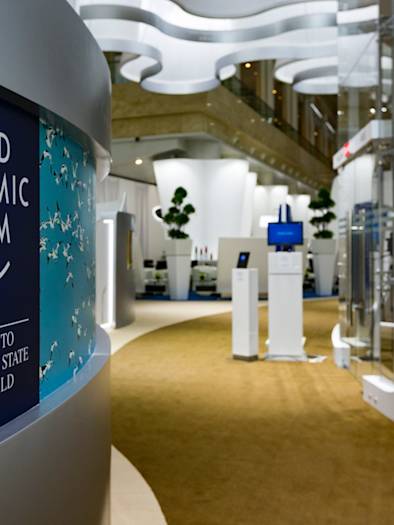
Wang Yi’s European Tour Reveals Chinese Economic and Diplomatic Policy at Odds
Wang Yi, China’s top diplomat, has just wrapped up a high-profile tour of Europe, with notable appearances in Munich and Moscow. In Germany, Wang met with U.S. Secretary of State Antony Blinken on the sidelines of the Munich Security Conference. The meeting, tense in tone, only served to underline the current deterioration of U.S.-China relations, with the representatives of both countries calling on each other to take greater responsibility in their bilateral relationship.
At the conference, Wang Yi reiterated China’s position, emphasizing general negotiation and the cessation of fighting in Ukraine. U.S. and European representatives were disappointed, coming away with a perception that Beijing would not join them in efforts to dissuade Russian activities in the region.
Prior to the conference, there had been some hope among Western governments that China would adopt a more active role in resolving the conflict. Unconfirmed intelligence floated by the U.S. delegation, that China was considering providing arms to Russia, further complicated matters. Following Munich, Wang Yi then traveled to Moscow to meet with Russian President Vladimir Putin, where the two emphasized the strength of the China-Russia partnership.
Why it matters
China’s leadership has made it known that they intend for 2023 to be a year of economic resurgence for the country. President Xi himself, delivered this message both during December’s Central Economic Work Conference (CEWC) and again in his latest article in Qiushi, the Party’s favored mouthpiece. While domestic consumption will serve as the primary driver of this economic activity, Xi emphasized that greater effort must be made to attract and utilize foreign capital and business. Last month, China’s top economic official, Vice Premier Liu He issued a promise to the international community at Davos, that “China’s door to the outside world will only open wider.” Local leaders of economic powerhouses, including those of Shanghai, Guangdong, and Beijing, have already begun to demonstrate a greater degree of interest and responsiveness in meetings with leading multinational companies.
Herein lies the challenge. Though China’s leaders seek to attract a greater slice of foreign business and investment in 2023, continued diplomatic friction may disrupt business between China and the West. In Wang Yi’s recent visit to Munich, he repeatedly framed the U.S. as the primary antagonist in the ongoing war in Ukraine, a perspective largely at odds with the current European consensus, and one that is unlikely to advance China’s reputation in the region. Following the recent “balloon incident” between the U.S. and China, the agreement established between Presidents Biden and Xi on the sidelines of the G20 Summit in Bali for dialogue and diplomatic guardrails, appears increasingly at risk.
What to expect
Spurred by policy directives issued by Party leadership, China’s central, provincial, and municipal authorities will continue to seek to roll out measures and reforms designed to attract foreign investment and business, particularly in sectors related to research, technology, and advanced manufacturing. In more specific terms, we’ll see trade officials of all levels court foreign business in China and abroad, authorities of all levels become more responsive to foreign business concerns, an expansion of favorable financial and tax incentives for new investment, and the accelerated issuance of visas, business permits, and requisite approvals. However, China’s diplomatic stance will likely remain fundamentally unchanged, despite earlier signs of softening, prior to the “balloon incident.”
If China and the U.S. manage to navigate the current deterioration in relations, indicated by a visit by either Secretary Blinken or Yellen, or both to Beijing after China’s “Two Sessions”, a minor détente yet may still be possible. The White House has signaled a moderating approach in its China policy in recent weeks, and Chinese leadership may choose to accept this shift in policy as a sign of goodwill.
Key takeaways
Despite a rising expectation of an economic rebound amongst China’s foreign business community, uncertainty continues to loom large as a fast-moving geopolitical landscape foreshadows unforeseen risks and exposure. While we believe Beijing is ready to triple down on its domestic efforts to instill confidence in foreign investors, its diplomatic messaging could negatively alter national security considerations in Washington, Brussels, and beyond.
In past months, there existed a widely held expectation among foreign analysts that a shift in Beijing’s diplomatic approach would follow the 20th Party Congress. Wang Yi’s European tour suggests that this may not be the case, or is farther off than anticipated. The foreign business community will need to navigate increasingly fluid terrain in U.S.-China relations and the wider geopolitical environment.
For these reasons, we recommend that multinationals prepare extensive contingency strategies to mitigate regulatory risk both in China and in their home countries, while taking full advantage of the plethora of forthcoming Chinese policy incentives. We also recommend that business leaders leverage this current period to shore up or to establish robust relations with existing and incoming key Chinese stakeholders, while officials are incentivized to be more amenable to the concerns of multinational business interests.
Our Public Affairs team in China provides regular updates on the latest policies and politics coming out of China, and why they matter. If you’re interested in receiving the bi-weekly China Thread newsletter and other spotlight memos from H+K China – make sure to subscribe here.






